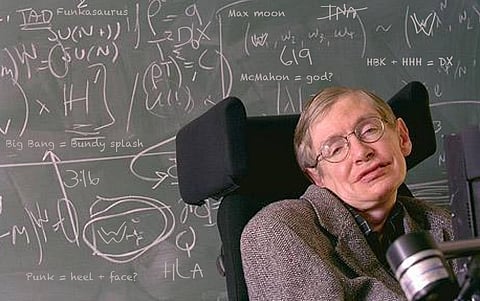There are a number of aspects involved with this issue, and to choose to go for or against it is a tough decision to make.
Key influential figures have come forth to present their opinion about the same. In addition to Hawking, there's Pope Francis, who, in November 2014 said that the '"right-to-die" is a sin against God and creation." He gave his comments in response to the international movement that had been going on to legalize assisted suicide, especially in India and the UK.
Interestingly, another religious leader – Desmond Tutu – a Nobel peace laureate and archbishop emeritus of Cape Town lent his full-fledged support to Britain's plans of legally allowing assisted death.
'The Right To Die'
A demand for a right to die is simple, but the differential understanding of key concepts involved in the debate, means that any model of assisted suicide retains certain aspects that put its moral stature to test.
Those in favour of assisted suicide claim that every person has the right to decide what to do with their lives as long as they aren't inflicting any harm on others. Moreover, they believe that it is a moral duty of the society to relive their fellow humans from their sufferings, instead of choosing not to help them and encouraging them to live a deplorable life.
The Conflict
On the contrary, opponents of the same argue that people have a moral obligation to respect and preserve all forms of life. They should strive for the creation of a peaceful society wherein all humans co- exist, and not a society where questions of life and death are in the bare hands of people, holding the power of such a momentous decision.
To delve deeper into the debate, it is essential to note the key aspect of the debate, the difference between active and passive euthanasia (assisted suicide).
Active euthanasia occurs when the medical professionals deliberately do something that causes the death of the patient, such as administering a lethal substance.
Passive euthanasia occurs when the patient dies because the medical professionals withhold the common treatments necessary for keeping the patient alive, for example, switching off life support or disconnecting a feeding tube.
The Debate Of Morality
The question which one is 'better' out of the two, has often been equated to asking the real difference between 'killing' and 'letting die'. Many people in favour of passive euthanasia argue that it is morally acceptable to withhold treatment and let the patient die.
A number of doctors agree with the same because it frees them from the non-adherence to the basic rule of medicine : "Thou shalt not kill." The rule also says, "Thou needst not strive officiously, to keep alive."
Is There A Real Difference After All?
However, there are some people who argue that there is no real difference between the two modes as both result in death. If stopping treatment is a deliberate act, so is deciding not to carry out a particular treatment.
Philosophers, on the other hand, argue that if we had to choose one method with higher morality, it'll be active euthanasia, because it ends in the loss of life with lesser pain and in an easier manner.
The International Debate
The most recent development is the California Senate's approval of a Physician-Assisted Suicide Bill that would allow some terminally ill patients to obtain medication to end their lives. Opponents of the Bill say it is dangerous.
"Californians with terminal diseases should have the autonomy to approach death on their own terms, and I look forward to continuing this policy discussion in the Assembly," California Senator Bill Monning, (D-Carmel), one of the bill's sponsors, said in a statement on June 4th,2015.
In Ireland, however, a whole new advocacy group against assisted suicide has sprung up. The group argues that legalizing assisted suicide and euthanasia would hint towards a direct discrimination against the disabled. This argument happens to be the most widely given and accepted, in debates all across the globe.
Doctors claim that more often it isn't used by older people, but by "middle-aged to younger-older" people, where the main reason seems to be a fear of disability or a fear of age-related diseases.
The Case Of India
In India, the prime reason why the debate about euthanasia began and gained force was Aruna Shanbaug,a nurse working in the KEM hospital in Mumbai. She was strangled and sodomized by Sohanlal Walmiki, a sweeper. During the attack she was strangled with a chain, and the deprivation of oxygen had left her in a vegetative state since 1973. A judgment was passed in wake of social activist Pinki Virani's plea to the highest court in December 2009 under the Constitutional provision of "Next Friend". In 2011, the Government passed a historic judgement-law permitting passive euthanasia in the country. This, however, did not help Aruna. The court rejected the plea to discontinue Aruna's life support due to the fact that the hospital staff that treated her did not support euthanizing her.She died from pneumonia on 18 May 2015, after being in a coma for 42 years.


